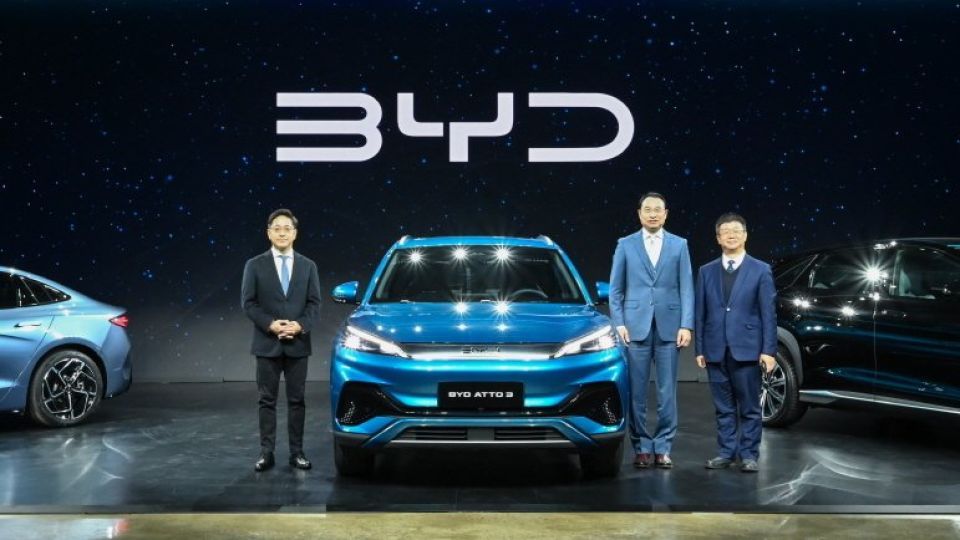January 17, 2025
SEOUL – China’s electric vehicle juggernaut BYD has made a daring entry to South Korea — the home turf of its Asian rival, Hyundai Motor Group — with a competitive pricing strategy aimed at winning over local drivers who remain hesitant to go electric.
BYD’s first Korean launch features the Atto 3 electric SUV, which is offered in two variants, basic and upper trims, with prices set at 31.5 million won ($21,700) and 33.3 million won, respectively. After applying for the government’s EV subsidy, the cost for both models drops to approximately 20 million won, less than half what they cost in the US or Europe.
“We finalized the Atto 3’s pricing just last night after discussions with (BYD’s) headquarters in China,” said Cho In-chul, head of the passenger car division at BYD Korea, during a press conference on Thursday in Incheon. “Given the high standards of Korean consumers (for EVs,) the headquarters has extended special attention to the Korean market (by lowering the price) to invite more consumers to experience the Atto 3.” Cho noted that the primary target for the Atto 3 is young and entry-level buyers, who are likely to have little prejudice about Chinese brands.
The EV giant’s aggressive pricing is expected to place Hyundai Motor, which has already expressed concerns, in a challenging position. An executive from the company’s research lab said on Wednesday during a seminar that they need to stay vigilant on how BYD is gaining a competitive edge in global car markets and attempts to appeal to domestic consumers.
Atto 3’s rival models, Hyundai’s Kona EV and Kia’s Niro EV and EV3, are over 10 million won more expensive, though they boast a longer driving range of up to 501 kilometers compared to the Atto 3’s 321km.
Following the launch of the Atto 3, with preorders starting on Thursday and deliveries scheduled for mid-February, BYD’s Seal, a mid-sized electrified sedan, and the Sealion, a mid-sized battery-powered SUV, are slated for launch by the second half of this year.
Despite its price advantage, BYD is committed to building consumers’ trust in its brand before making public of its ambitious sales target, according to Liu Xueliang, general manager of BYD Asia Pacific auto sales division.
In addition to promoting brand experience with three car models, the Chinese EV giant plans to provide accurate information on Korean consumers, as they are often swayed by misguided concerns about electric cars. Emphasizing its roots as a battery manufacturer, Cho asserted that BYD’s lithium iron phosphate battery technology surpasses all competitors in terms of safety and performance. In contrast, Korean competitors focus more on nickel, cobalt and manganese batteries with higher capacities.
Addressing data security as one of the major concerns regarding Chinese brands, Cho assured that the company’s cars sold in Korea use local servers for data transmission, preventing any leakage to China.
With an aim to offer the best quality service, BYD is set to establish 15 showrooms and 12 service centers in regions including Seoul, Gyeonggi Province, Gwangju and North Gyeongsang Province.
Meanwhile, BYD set up a Korean branch in 2016, a year after visiting the International Electric Vehicle Expo on Jeju Island. It sold hydrogen-powered buses to operators in Udo, a small island just east of Jeju, in the same year. By 2024, the Chinese EV maker had sold over 1,000 buses.


